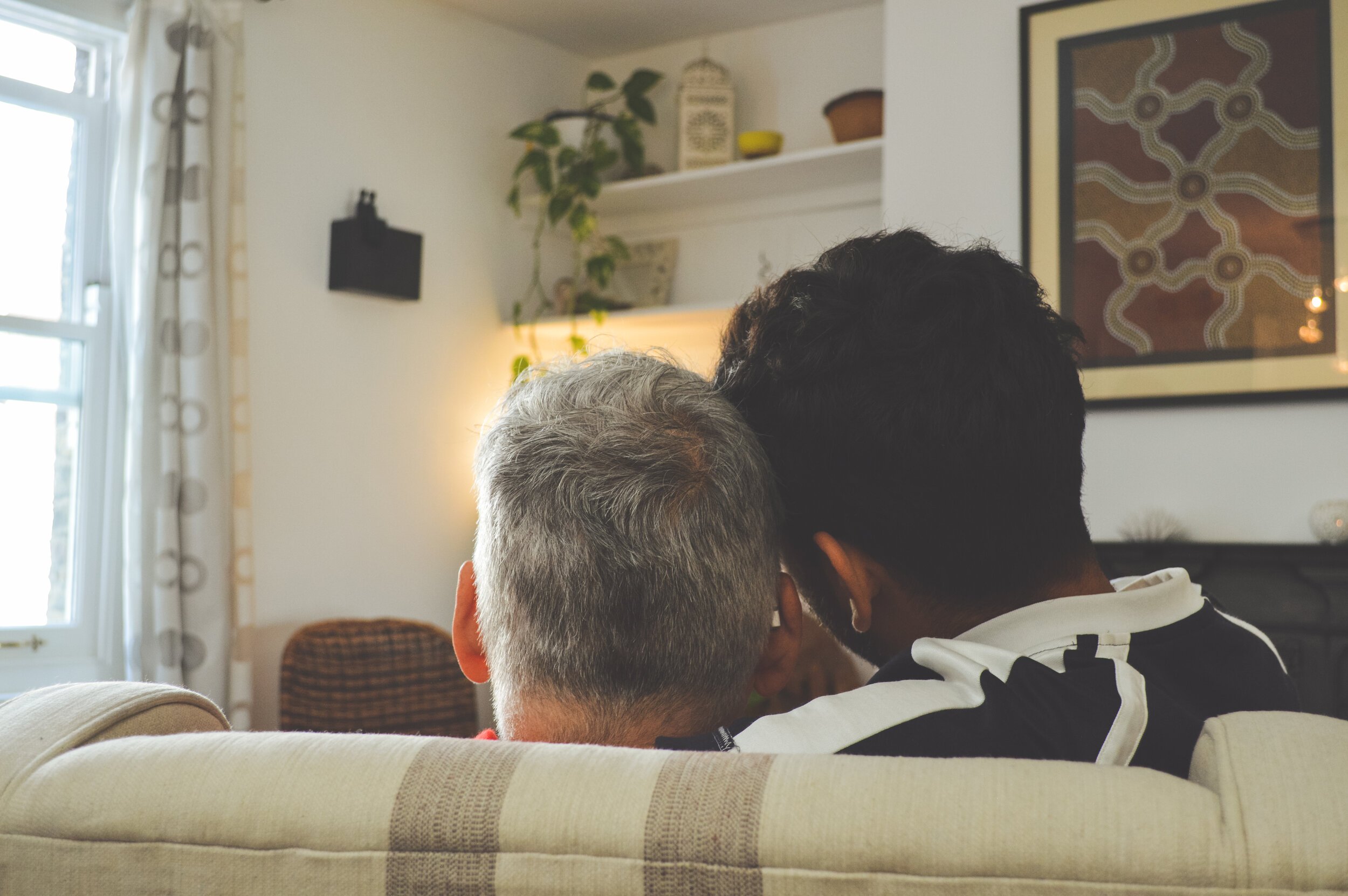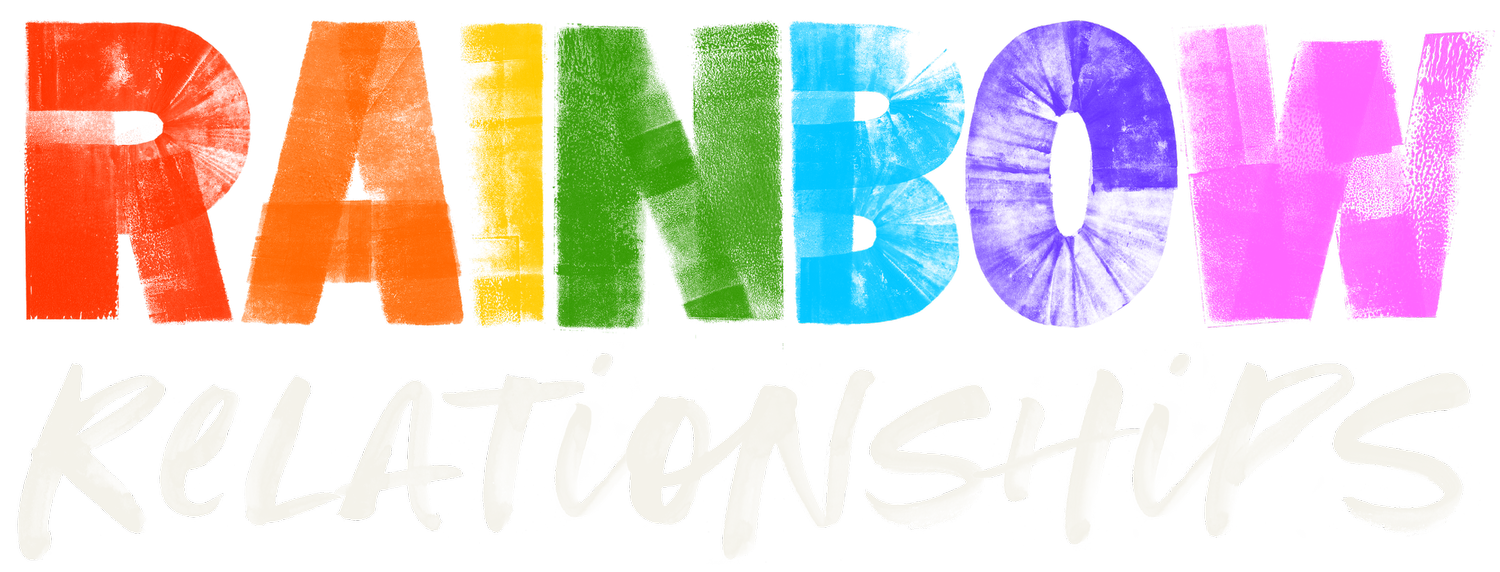
Relationships
Relationship therapy is often referred to as couple therapy, and often people who come to me for relationship therapy are couples in romantic relationships. However, I also work with other types of relationships where the people involved are facing challenges. Whether that be family members stuck in unhappy family dynamics, creative working partnerships encountering difficulties, or lifelong friends who are in crisis but cannot face ending their friendship.
In romantic relationships too, there are many variations beyond the norm of a cis/heterosexual couple in a monogamous relationship. Many of the people I work with are in open or polyamorous relationships and seeking support for a primary couple, a thruple, sessions with meta’s, or they may be a polycule who meet for therapy in different combinations of pairs or groups in order that more complex interactions can be helpfully explored.
You may be a part of the swinging, BDSM, and kink scenes or couples who enjoy threesomes, casual hook-ups, sex parties or fetish play. You may be asexual, straight, bisexual/pansexual, gay, lesbian, or without a neat sexual identity label. You may be female, male, cis, trans, non-binary, or genderqueer in your gender identity. Whatever your own relationship rainbow, you are welcome. Relationships are as wonderfully varied as the people in them and each variation brings its own challenges and own set of pleasures.
asexual, straight, bisexual, pansexual, gay, lesbian, queer, demisexual,
asexual, straight, bisexual, pansexual, gay, lesbian, queer, demisexual,
female, male, cis, trans, non-binary, genderqueer, transmasc, transfemme, gender expansive,
female, male, cis, trans, non-binary, genderqueer, transmasc, transfemme, gender expansive,
polyamorous, monogamous, relationship anarchy, swingers, open, threesomes, twosomes, moresomes, vanilla, kink, BDSM, fetish,
polyamorous, monogamous, relationship anarchy, swingers, open, threesomes, twosomes, moresomes, vanilla, kink, BDSM, fetish,

“Love, like light, throws shadows”
Tolstoy
A well-known quote from Sartre reads, “hell is other people.” Seemingly misanthropic as a sentiment, it certainly reflects the reality that it is our relationships that cause us most heartache and pain. Romantic relationships, family relationships, friendship relationships, sexual relationships, workplace relationships. The irony here is that much as other people are so often the cause of our difficulties, they are also often the source of our greatest joys. The part of the equation that Sartre missed, was that heaven is also other people.
So, what happens when an important relationship you are having becomes more hell than heaven? When you feel you have tried everything to repair it, restart it or reconnect and you are still distant, hostile or just not good for each other anymore.
Coming for relationship therapy can be a way forward out of an impasse, not least because it usually means you have acknowledged together that your relationship is in crisis and you need some additional help.

Piglet sidled up to Pooh from behind.
“Pooh”, he whispered
“Yes, Piglet?”
“Nothing,” said Piglet, taking Pooh’s paw
“I just wanted to be sure of you.”
A.A.Milne
My role as a relationship therapist is to facilitate a more honest, explicit, and connected conversation between the people involved. My focus is not on whether people stay together or separate, change, or repeat the same patterns. That part is entirely up to the people in the relationship. What I am invested in is offering feedback on the dynamic between people, to hopefully throw some more light into the shadows, helping people notice and then address, unhelpful communication styles and ways of relating to each other.
Most people come for relationship therapy wanting the other person, or people, to love them in the way they prefer to be loved and for their partner, lover, or family member to change in ways that would benefit them. Therefore, the first task of relationship therapy is not just to express your own thoughts, feelings, and experiences, but also to understand the other person’s perspective. With a generosity of spirit and curiosity in order to really listen to what the other person is trying to tell you.
Having a therapist present can make this initial process far easier. A therapist can intervene when communication is breaking down, or when double standards and unreflected biases are not being picked up on. A therapist can help you feel safer and more willing to face challenges with courage and compassion.
Certainly, my intention is to be your ally, whilst you work through the difficulties that are preventing a good connection, to help you explore the way you co-create the quality of your relationship and make decisions about how you want to be in the future, individually and as a pair, a three or a group.



